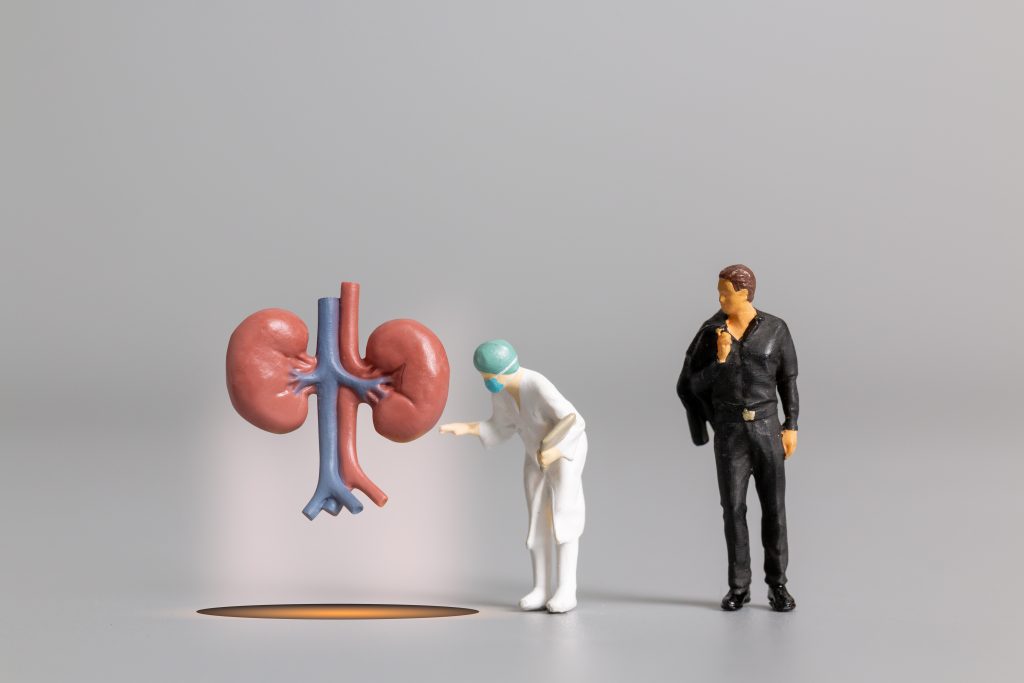While kidney stones are a common condition that millions of people suffer from, they are not always well understood. There are quite a few incorrect ideas, some of them potentially harmful, about kidney stones. The following are eight of the biggest kidney stone myths that you should stop believing in.

1. You Should Avoid Calcium
The most common type of kidney stone is calcium oxalate stones, which form when calcium binds to oxalates. Because calcium is involved, people often assume that they should avoid calcium in food to prevent kidney stones. Research shows that food-based calcium such as dairy actually helps to manage and prevent calcium oxalate stones. The same, however, isn’t true for calcium supplements, which you should only take if recommended by your doctor.
2. Cranberry Juice is an Effective Kidney Stone Remedy
Cranberry juice are good for the kidneys if you don’t have kidney stones. They can help to keep healthy kidneys working well. They are also good for urinary tract infections. Cranberries, however, are high in oxalates, which are the worst thing for calcium oxalates stones. If you have these common kidney stone types you should avoid cranberries and cranberry juice.
3. All Tea is Bad For Kidney Stones
The tea kidney stones myth is a little complicated because you should avoid certain types of tea if you have calcium oxalate stones. Black tea is high in oxalates and is best to avoid. However, research shows that green tea can be beneficial for stones. There are also many types of herbal tea that are fine. You can reduce the oxalate content of tea by taking it with milk.
4. Beer is Good For Passing Kidney Stones
The beer and kidney stones myth started because drinking beer often triggers urination. This can help to pass small stones. As a rule, however, beer, or any alcoholic beverage, is far from ideal for kidney stones. Alcohol has a dehydrating effect, which is the opposite of what you want for kidney stones. Furthermore, some beer is high in oxalates.
5. Everyone Should Avoid the Same Foods That Make Kidney Stones
There is no one ideal kidney stone diet for everyone. For one thing, kidney stone is a disease that takes several distinct forms. If you have calcium oxalate stones, you should avoid high oxalate foods, which include spinach, chard, almonds, beets, potatoes, and many other vegetables, fruits, and grains. Uric acid stones, on the other hand, are triggered by high purine foods such as meat and many types of fish. Even among people with the same type of stones, you need to tailor your diet to your overall health and sensitivities.
6. All Kidney Stones Require Medical Procedures
Larger kidney stones may require surgery or other treatments such as shock wave lithotripsy, many stones pass on their own. Your doctor may advise you to make certain changes in your diet and provide you with medication for pain relief. According to the latest estimates, only between 10% and 20% of kidney stones require surgery.
7. You Always Feel Intense Pain When You Have Kidney Stones
Kidney stones can be extremely painful, especially if they are large or are in a place that blocks the flow of urine. However, many stones are not painful at first. You may notice symptoms such as blood in the urine, difficulty urinating, or mild discomfort in areas such as the lower back. It’s important to get such symptoms checked promptly.
8. Kidney Stones are Caused By Drinking Soda
While certain foods and beverages can irritate an existing case of kidney stones, there’s no evidence that drinking soda or consuming any specific food causes stones to occur in the first place. That said, drinking soda isn’t ideal if you already have kidney stones due to its high sugar content. If you do drink soda, avoid those with phosphoric acid, which can contribute to calcium buildups in the urine.
As these myths illustrate, kidney stones can be fairly complicated. Symptoms, severity, and recurrences differ from one individual to the next. Managing and preventing kidney stones may take some effort and long-term lifestyle changes. It’s also important to listen to your doctor and not believe every myth and rumor you read online.
